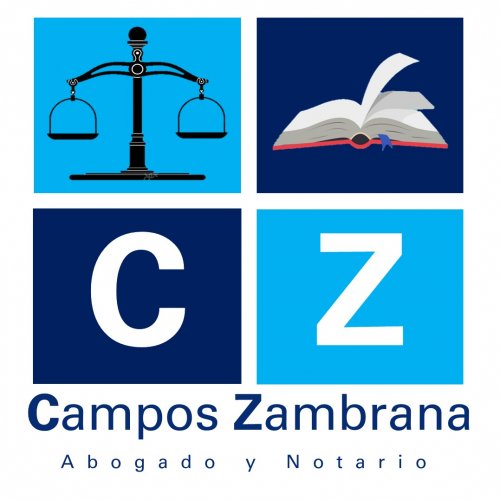Best Art & Cultural Property Law Lawyers in Nicaragua
Share your needs with us, get contacted by law firms.
Free. Takes 2 min.
Or refine your search by selecting a city:
List of the best lawyers in Nicaragua
About Art & Cultural Property Law in Nicaragua
Nicaragua is rich in cultural heritage and traditions, with a history that spans back to pre-Columbian times. Art & Cultural Property Law in Nicaragua is designed to protect and preserve the country's cultural assets, including artifacts, historic sites, and artistic expressions. These laws ensure that cultural property is safeguarded from illegal trade, unauthorized reproduction, and damage due to development or neglect.
The legal framework is influenced by international conventions such as the UNESCO 1970 Convention and is supported by local legislation that outlines how cultural properties should be managed, transferred, and utilized. Additionally, these laws aim to foster cultural awareness and respect for Nicaragua’s diverse traditions.
Why You May Need a Lawyer
Legal assistance in Art & Cultural Property Law may be needed in a range of situations:
- Ownership disputes: When ownership of an artwork or cultural property is contested.
- Export and import regulations: Navigating laws on the legal movement of cultural goods across borders.
- Heritage site protection: Issues related to the preservation of historical sites against urban development or natural deterioration.
- Art theft and recovery: When you are involved in cases of stolen art or need assistance in recovering a piece.
- Copyright and reproduction rights: If you're an artist concerned about unauthorized reproductions of your work.
- Restoration projects: Legal advice on the conditions and permissions required for restoring cultural properties.
Local Laws Overview
Key aspects of Nicaraguan Art & Cultural Property Law include:
- Protection and Conservation: National laws mandate the protection, conservation, and restoration of cultural properties, and establish penalties for illegal activities affecting them.
- Registration of Cultural Property: Cultural items of significant value should be registered with the appropriate governmental bodies to ensure legal protections.
- Export Licenses: To export artworks or artifacts, individuals must obtain the necessary licenses to ensure compliance with national regulations.
- Repatriation Policies: Policies are in place for the repatriation of cultural goods that have been illegally exported or appropriated during conflicts.
- Local and Indigenous Rights: Special considerations are given to the cultural expressions and properties of indigenous communities.
Frequently Asked Questions
What is considered cultural property in Nicaragua?
Cultural property includes tangible and intangible items deemed important to heritage, such as artworks, artifacts, music, dance, and literature.
What laws protect cultural heritage in Nicaragua?
The main laws include the Nicaraguan Cultural Heritage Law and regulations based on international agreements like the UNESCO 1970 Convention.
How can I legally purchase Nicaraguan art or artifacts?
Verify the seller's credentials, ensure the item is not on the restricted list, and obtain any necessary export permits.
What should I do if I discover a new archaeological site?
Report the discovery to the Nicaraguan Institute of Culture or local authorities to ensure proper documentation and protection.
Can I reproduce Nicaraguan cultural designs in my products?
Permission must be obtained if the design is protected under copyright laws or if it holds cultural significance.
Are there legal considerations for restoring historic buildings?
Yes, restoration projects must follow national guidelines to preserve the site’s historical integrity and may require official permits.
What penalties exist for the illegal trade of cultural property?
Penalties include fines, imprisonment, and the confiscation of illicitly traded items.
How can an artist protect their work in Nicaragua?
Artists can protect their work through copyrights or registration of their intellectual property with local authorities.
Is there support for cultural preservation projects?
Yes, the government, along with international organizations, may offer grants or technical assistance for approved cultural projects.
How do laws address cultural property rights of indigenous peoples?
Laws recognize the cultural property rights of indigenous communities, and special measures are taken to protect their cultural heritage.
Additional Resources
- Nicaraguan Institute of Culture: Main government body overseeing cultural heritage.
- National Archives: A repository for historical documents and references.
- UNESCO Office in San Jose: Provides regional support for cultural heritage issues.
- Local Art Collectors Associations: Organizations that can provide peer support and guidelines for collectors.
Next Steps
If you require legal support in Art & Cultural Property Law, consider the following steps:
- Research and contact specialized lawyers experienced in cultural property law in Nicaragua.
- Prepare all relevant documentation and information related to your case or situation.
- Schedule consultations to discuss your legal needs and understand potential legal pathways.
- Utilize resources from governmental bodies to gain insights and potential support for your case.
Taking proactive steps in seeking legal counsel will help ensure the protection of your interests while adhering to the laws governing art and cultural heritage in Nicaragua.
Lawzana helps you find the best lawyers and law firms in Nicaragua through a curated and pre-screened list of qualified legal professionals. Our platform offers rankings and detailed profiles of attorneys and law firms, allowing you to compare based on practice areas, including Art & Cultural Property Law, experience, and client feedback.
Each profile includes a description of the firm's areas of practice, client reviews, team members and partners, year of establishment, spoken languages, office locations, contact information, social media presence, and any published articles or resources. Most firms on our platform speak English and are experienced in both local and international legal matters.
Get a quote from top-rated law firms in Nicaragua — quickly, securely, and without unnecessary hassle.
Disclaimer:
The information provided on this page is for general informational purposes only and does not constitute legal advice. While we strive to ensure the accuracy and relevance of the content, legal information may change over time, and interpretations of the law can vary. You should always consult with a qualified legal professional for advice specific to your situation.
We disclaim all liability for actions taken or not taken based on the content of this page. If you believe any information is incorrect or outdated, please contact us, and we will review and update it where appropriate.
Browse art & cultural property law law firms by city in Nicaragua
Refine your search by selecting a city.











